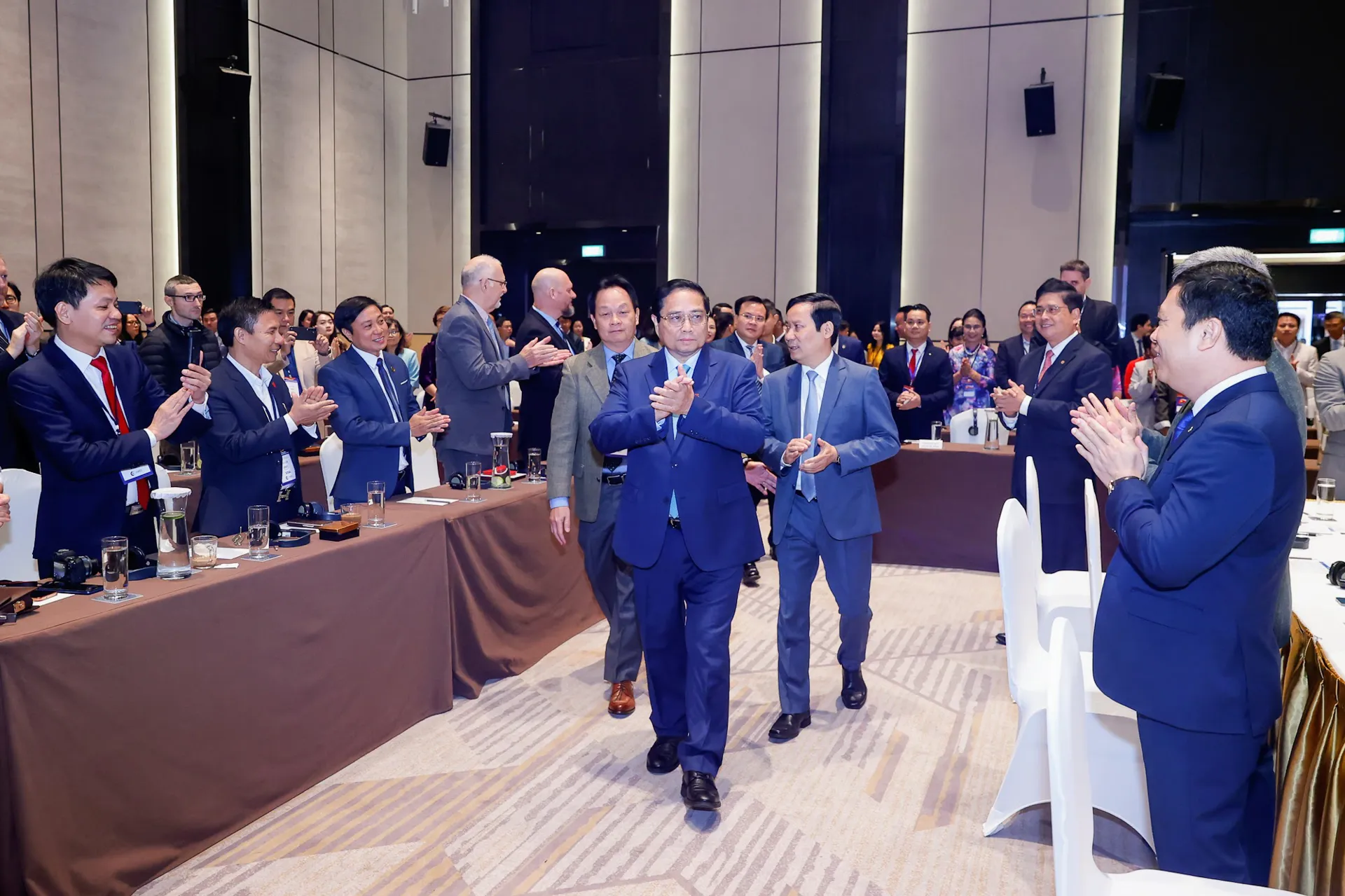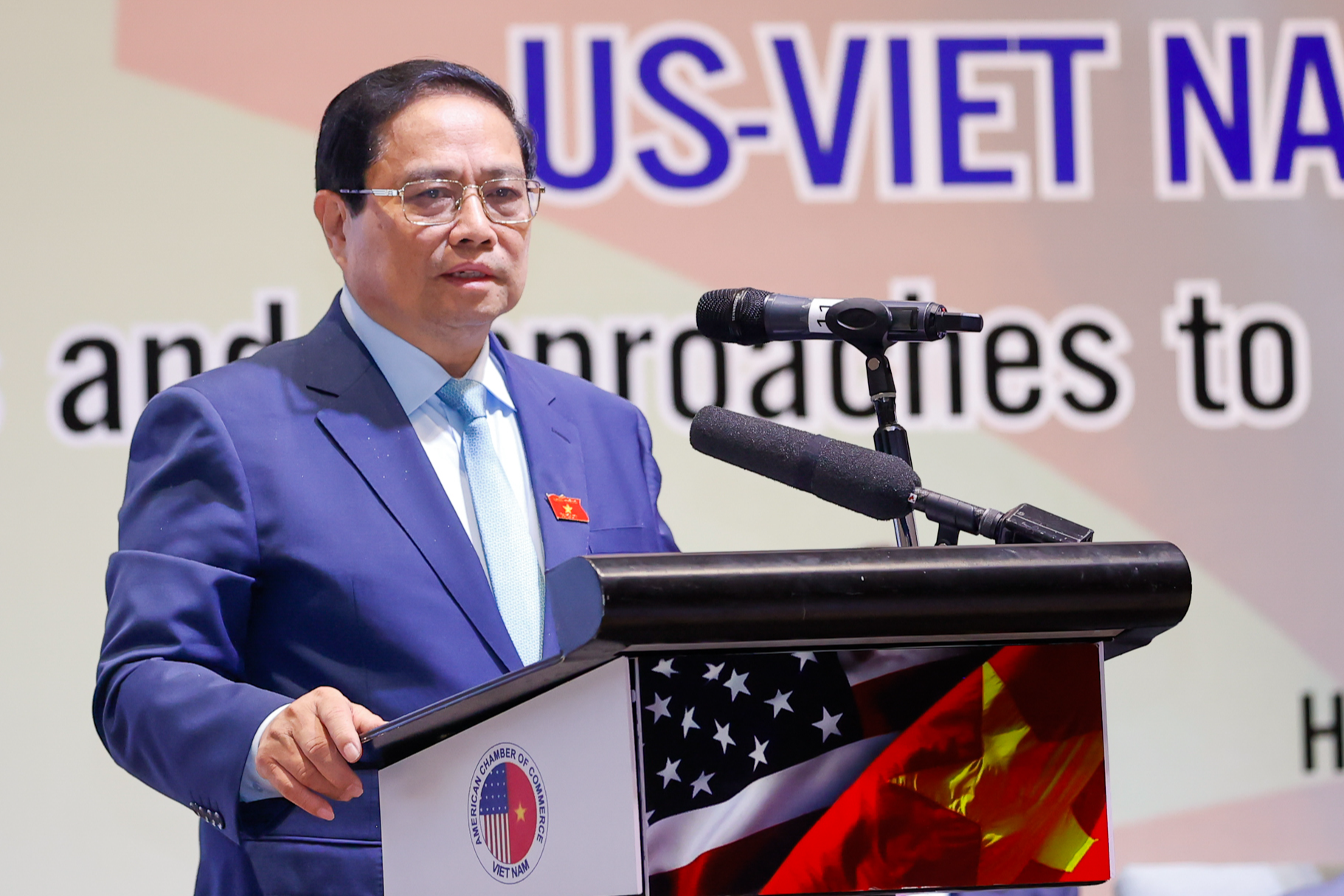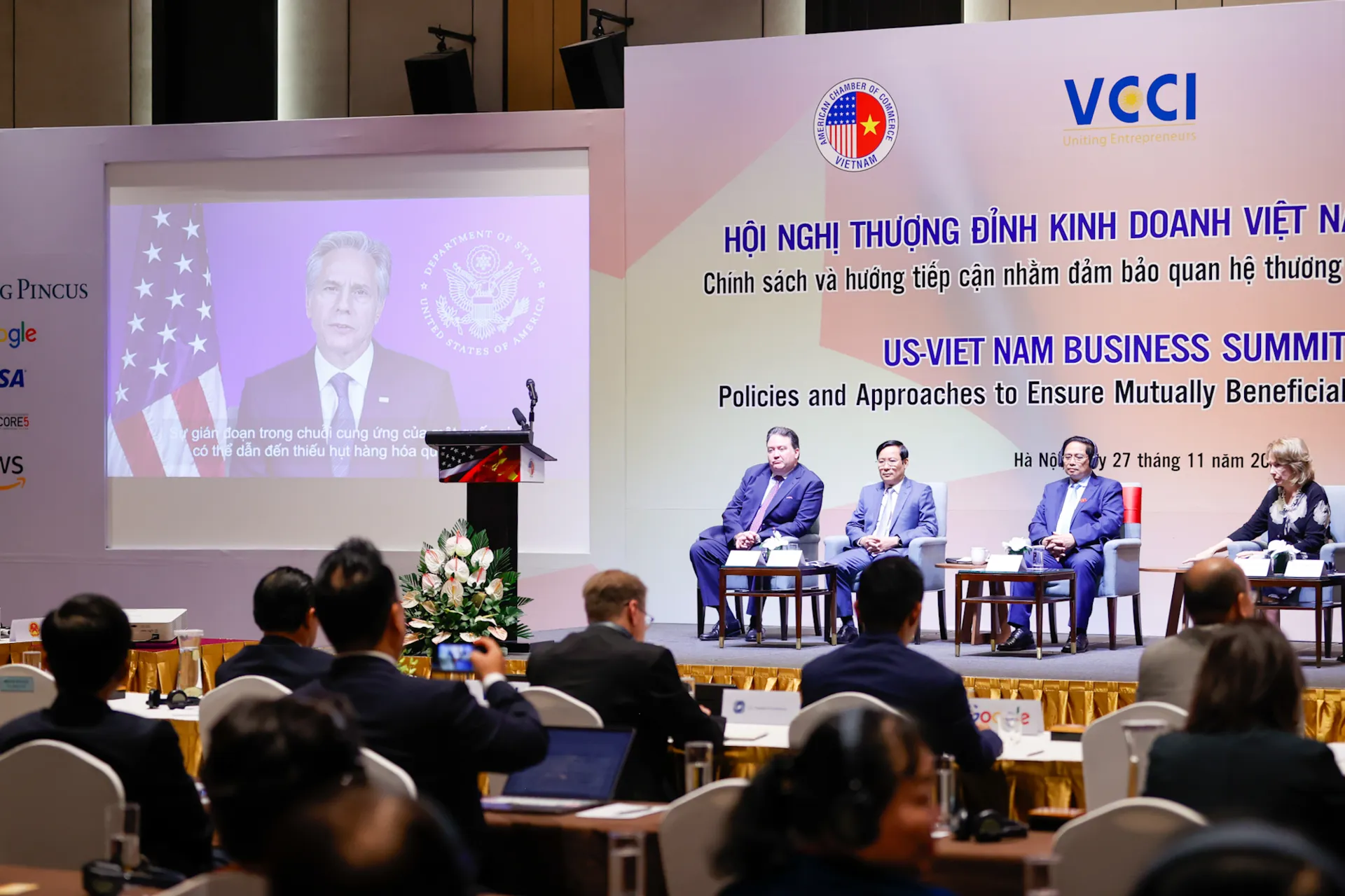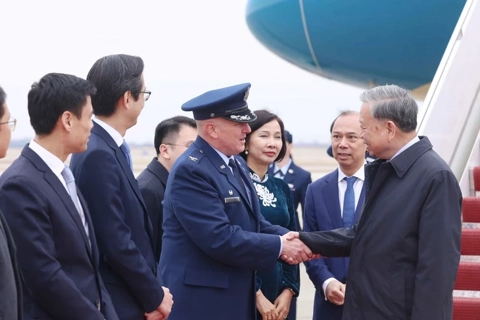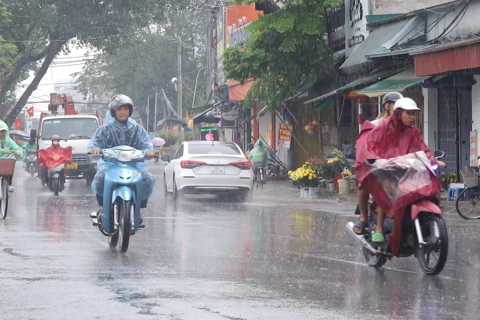US-Vietnam Business Summit: Strengthening economic ties
Trade stands as the cornerstone and most successful aspect of economic cooperation in the Vietnam-U.S. partnership.
Vietnam’s Prime Minister Pham Minh Chinh underscored the pivotal role of trade as the most significant and successful area of economic cooperation in the Vietnam-US partnership.
| Vietnam’s Prime Minister Pham Minh Chinh at the US-Vietnam Business Summit held in Hanoi on November 27. Photos: VGP |
The prime minister said at the US-Vietnam Business Summit on November 27 held in a hybrid format with the recorded speech by US Secretary of State Antony Blinken and the participation of leaders from various Vietnamese ministries and agencies, US Ambassador to Vietnam Marc Knapper, and many business representatives from both nations.
The event themed Policies and Approaches to Ensure Mutually Beneficial Commercial Relations highlighted a shared commitment to unlocking the vast potential of bilateral collaboration, particularly in areas outlined in the Joint Statement on the Vietnam-US Comprehensive Strategic Partnership covering ten pillars, with trade and investment serving as the "eternal engine and main pillar," alongside breakthroughs in education, science, technology, and innovation.
Co-organized by the Vietnam Chamber of Commerce and Industry (VCCI), the American Chamber of Commerce in Hanoi (AmCham), and the US Chamber of Commerce in Washington, the summit was a key platform for dialogue on policy and economic strategies.
The summit reflected discussions on policies and actions for ensuring mutually beneficial trade and investment ties with topics covering implementing reasonable regulatory frameworks; maximizing the potential of the digital economy; addressing energy security and sustainable development through actionable solutions; enhancing competitiveness by boosting productivity and mitigating risks; and strengthening resource mobilization, production capacity, and supply chain resilience.
The US remains Vietnam's second-largest trading partner, largest export market, and a leading investor. Meanwhile, Vietnam has risen to become one of the US’s top ten trading partners.
Bilateral trade reached a record US$110.8 billion in 2023, growing further to $110.9 billion in the first ten months of 2024.
Regarding investment, by October 2024, US investors managed 1,400 active FDI projects in Vietnam, with a total registered capital of nearly $12 billion, placing the US 11th among 148 investing nations.
At the same time, Vietnamese companies like FPT and VinFast have actively expanded their operations in the US, creating mutual benefits.
| Prime Minister Pham Minh Chinh delivers a speech at the summit. |
Perspectives
Antony Blinken, in his virtual address, lauded the vibrant and growing cooperation between the two nations, which he said delivers real benefits to their people. He also noted Vietnam's increasing global significance and its importance to US businesses.
Meanwhile, Pham Tan Cong, the VCCI Chairman emphasized the summit's role as an annual forum for fostering new opportunities and tackling challenges in areas like trade, investment, the digital economy, and energy security.
Joseph Uddo, the AmCham Chairman highlighted the importance of improving policy frameworks, attracting new investors, and supporting existing businesses in Vietnam, particularly in light of strengthened bilateral ties.
Prime Minister Pham Minh Chinh reflected on the deep historical roots of US-Vietnam relations, which date back to President Ho Chi Minh’s letter to President Harry Truman in 1946. The PM acknowledged the relationship's evolution over nearly three decades of diplomatic ties, built on the principles of "putting the past behind, overcoming differences, promoting similarities, and looking to the future."
| The event marks the recorded speech of US State Secretary Antony Blinken. |
Vietnam has emerged as one of the world’s 34 largest economies and a top 20 global trade leader, with trade turnover projected to reach $800 billion in 2024. Foreign investment has exceeded $400 billion, with $40 billion in FDI targeted for this year.
To support the growth momentum, the Vietnamese government is advancing three strategic priorities, namely institutional reform with streamlining governance to enhance efficiency and attract investment; infrastructure development by constructing high-speed railways, major airports, seaports, and an integrated transportation network; and human resources by focusing on education, innovation, and digital transformation.
Vietnam is also driving growth in emerging sectors such as the digital economy, green economy, circular economy, and knowledge economy. New industries like cloud computing, AI, and IoT are being developed under the principle of "innovation for growth."
At the summit, Prime Minister Chinh urged US businesses to expand cooperation and investment in Vietnam’s priority sectors. He also called on the US to recognize Vietnam as a market economy and remove restrictions on high-tech exports, emphasizing the shared benefits of these actions.
The Prime Minister also highlighted Vietnam’s dedication to addressing the legacy of war, including the clearance of unexploded ordnance and mitigating the effects of Agent Orange, as part of broader efforts to strengthen the partnership for mutual prosperity.


